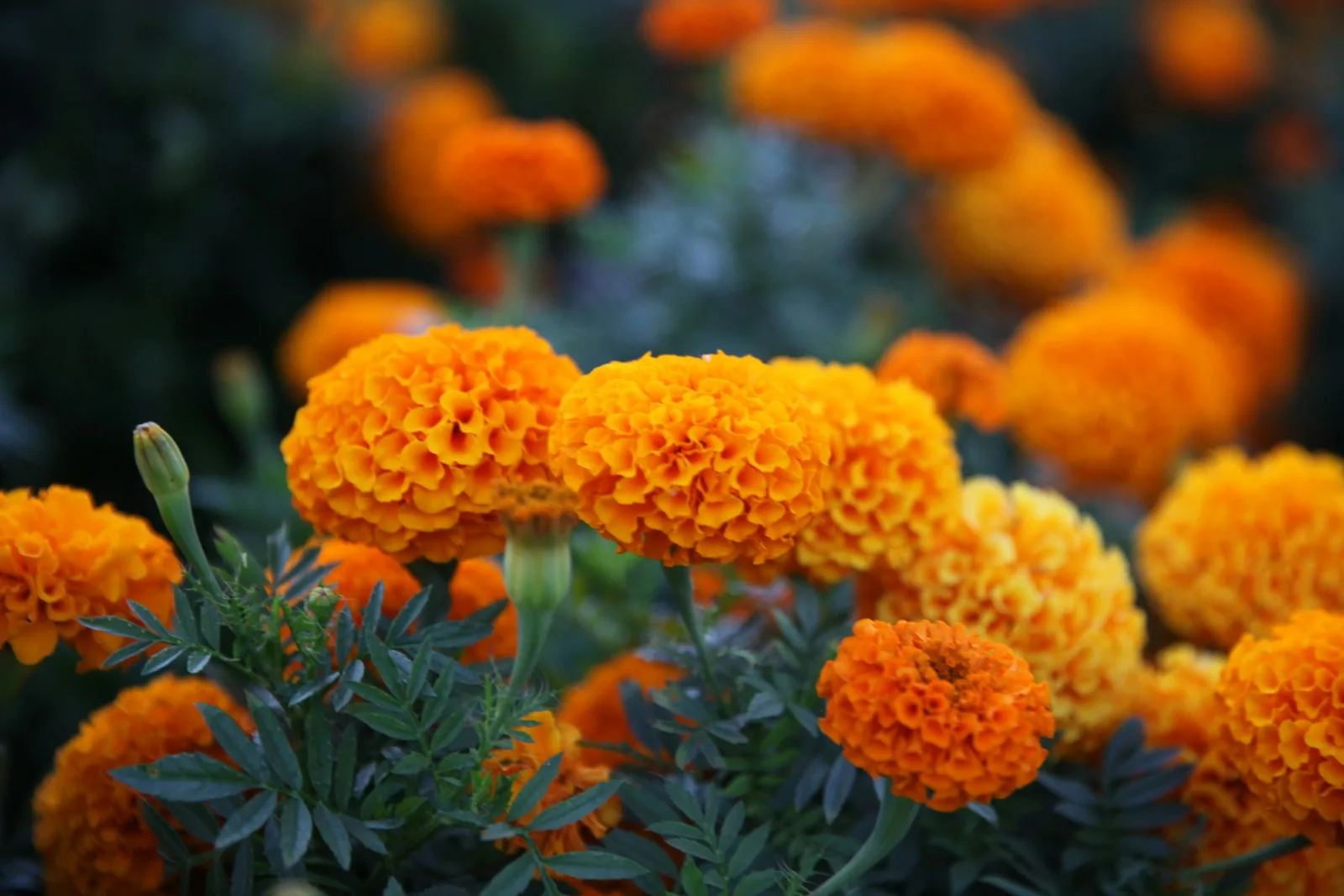
Table of Contents
Gardeners consider marigolds (Tagetes) to be a highly valued plant. Besides coming in a variety of sizes and vibrant colors, they are known for their ability to repel a wide range of garden pests.
Since marigolds are so good at keeping bugs and insects away, I planted them where I was working. I planted marigolds in the greenhouse, especially around the tomato and pepper plants, but I scattered them in clusters in the outdoor vegetable beds to keep them away from many pests. It was also an annual in a historic garden I worked on, where it was placed in an elegant parterre purely for aesthetic reasons.
If you’re sure how to grow marigolds , you’ll want to learn how to take advantage of their ability to repel insects. Marigolds bloom for several months in summer or fall and can be grown from seed or purchased as plants from garden stores or online.
What do marigolds repel?

When it comes to plants that deter pests, marigolds are among the greatest. They give forth an overpowering smell, and it is this powerful perfume that keeps bugs and insects away. Instead of choosing more contemporary hybrid kinds that lack that strong perfume, it is imperative that you choose a marigold variety with a strong scent if you intend to cultivate marigolds.
Gardeners are well aware that marigolds have a strong fly-repelling scent, which works well against both black and white flies as well as aphids. Its powerful aroma also works well as a wasp and insect repellant.
According to seasoned gardener and non-garden editor Brock Ingham, African marigolds (Tagetes erecta) and French marigolds (Tagetes patula) derive their characteristic fragrance from a chemical called thiophene.
“Thiophene is an essential oil that acts as a natural insect repellent,” he says. The pungent smell of marigolds repels insects from the area, reducing the chances of pests and damage to neighboring plants.
The powerful, aromatic scent of French marigold repels a wide variety of pests. Aphids, whiteflies, mosquitoes and nematodes are the insects that are most successfully repelled by this smell.
‘African marigolds also have a distinctive fragrance, but their scent might not be as powerful as that of French marigolds. However, they are still effective at repelling certain insects like spider mites.’
In addition to its ability to repel insects, marigolds are annual plants that also have a secret under the surface. Some types of marigolds release toxic compounds from their roots that can kill root-knot nematodes and prevent the eggs of other nematodes from developing.
But to take advantage of this nematode-resistant trick, marigolds should be sown a few months earlier than other plants, or even the previous year. While research is needed to ensure that the variety you choose is beneficial against nematodes, French marigolds are believed to be the most successful.
Buy Marigold Seeds and Plants from Burpee
How do you use marigolds as insect repellent?

Marigolds are incredibly adaptable plants that work well in many different contexts. They bloom excellently for containers in full sun or as accents in flower beds or vegetable gardens. They are an excellent choice for companions to grow a wide range of crops such as beans, tomatoes, cucumbers, peppers, squash or eggplants, as they can grow in a wide range of environments. They can also be used as strawberry companion plants or friends of berries and fruit trees.
It’s a good idea to grow marigold seeds one at a time so that when you plant the plant you want to protect, the plants will be ready for their final location. Since marigolds are affordable to buy and easy to grow from seed, you can grow them in succession for a steady supply of insect-repellent plants all summer long.
Marigolds are useful as companion plants, but they can also be used as trap plants to get rid of pests. With this technique, the goal of growing trap plants is to attract certain insects away from other plants. For example, marigolds can be used as trap plants because they help kill thrips.
READ | Marigold Missteps: 1 Common Mistake You Can Make With Your Plants
Which marigold is best for insect repellent?

French, African, and cygnet marigolds (Tegetes tenuifolia) are the three primary types of marigolds most frequently found in gardens. The largest marigolds are African marigolds, which can grow up to four feet tall; French marigolds can reach twelve inches, while cygnet marigolds usually do not grow more than six inches.
French marigolds are believed to have the strongest scent, making them perfect for warding off a wide range of pests. According to Vineta Jackson, French marigolds are the most effective at keeping nematodes at bay, although other varieties of marigolds can also be useful in the garden.
French marigold roots contain the strongest nematode repellants of all varieties. By replanting them, I am able to fight harmful root nematodes without using pesticides, the woman said.
Other types of marigolds, such as miniature cygnets or tall African marigolds, can repel insect pests from the ground. Insects are confused by their strong scent. Examining hues and dimensions creates a dynamic border that protects.


1 thought on “Do marigolds deter insects? How to repel pests with these aromatic plants”